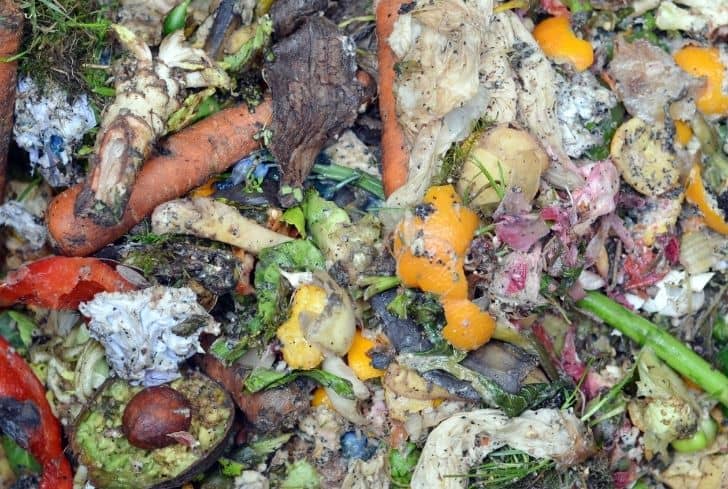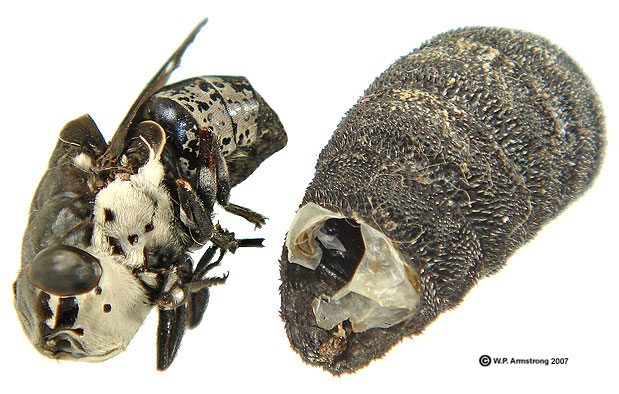Compost Fly: The Ultimate Guide To Getting Rid Of These Pests
Compost Fly: The Ultimate Guide to Getting Rid of These Pests
Compost flies are a common problem for many homeowners who compost. These flies are attracted to the moisture and decaying organic matter in compost bins, and they can quickly become a nuisance. In some cases, compost flies can even carry diseases.
If you're dealing with a compost fly infestation, don't worry - there are a number of things you can do to get rid of them. In this blog post, we'll discuss the different types of compost flies, how to identify them, and how to get rid of them for good.
What are compost flies?
There are a number of different types of compost flies, but the most common ones are:
- Fruit flies: These flies are small and dark-colored, with red eyes. They are attracted to rotting fruit and vegetables.
- Drain flies: These flies are also small and dark-colored, but they have long, feathery antennae. They are attracted to moist, decaying organic matter, such as food scraps and wet leaves.
- Black soldier fly larvae: These larvae are not actually flies, but they are often mistaken for them. They are large and dark-colored, with a segmented body. They are attracted to compost bins that contain a high concentration of nitrogen-rich materials, such as food scraps and manure.
How to identify compost flies
The best way to identify compost flies is to look for them in your compost bin. If you see small, dark-colored flies buzzing around your compost, chances are you have a compost fly infestation. You may also see maggots, which are the larval stage of compost flies.
How to get rid of compost flies
There are a number of ways to get rid of compost flies. Here are a few tips:
- Keep your compost bin dry. Compost flies are attracted to moisture, so one of the best ways to deter them is to keep your compost bin dry. You can do this by adding dry materials, such as leaves or straw, to your compost bin.
- Turn your compost regularly. Turning your compost helps to aerate it and break down the organic matter more quickly. This can help to reduce the moisture content of your compost and make it less attractive to compost flies.
- Cover your compost bin. Covering your compost bin will help to keep flies out. You can use a lid, a tarp, or even just a piece of cardboard.
- Add beneficial insects. There are a number of beneficial insects that can help to control compost fly populations. These insects include ladybugs, lacewings, and nematodes. You can purchase these insects online or at your local garden center.
- Use a pesticide. If you have a severe compost fly infestation, you may need to use a pesticide. There are a number of different pesticides available, so be sure to choose one that is safe for use around compost bins.
Conclusion
Compost flies can be a nuisance, but they can be easily controlled. By following the tips in this blog post, you can get rid of compost flies and keep your compost bin free of pests.
Are you having problems with compost flies? These small, pesky insects can be a nuisance, but they're not harmful to your compost. In fact, they can actually be beneficial by helping to break down organic matter.
If you're looking to get rid of compost flies, there are a few things you can do:
- Add more brown material to your compost pile. This will help to balance the moisture content and make the environment less attractive to flies.
- Turn your compost pile regularly. This will help to aerate the material and prevent it from becoming too wet or stagnant.
- Remove any rotting or overripe fruit or vegetables from your compost pile. Flies are attracted to these materials, so removing them will help to reduce their population.
If you've tried these tips and you're still having problems with compost flies, you can visit Home Gardening for more information. This website has a wealth of resources on composting, including information about how to prevent and control fly infestations.
FAQ of compost fly
Here are some of the most frequently asked questions about compost flies, along with some valuable insights and solutions:
- What are compost flies?
Compost flies are a type of fly that are attracted to decomposing organic matter. They are often found in compost bins, where they lay their eggs. The larvae of compost flies, called maggots, feed on the organic matter in the compost bin and help to break it down.
- Are compost flies harmful?
Compost flies are not harmful to humans or pets. They do not bite or sting, and they do not carry diseases. However, they can be a nuisance if they become too numerous.
- How can I prevent compost flies?
There are a few things you can do to prevent compost flies:
* Keep your compost bin covered. This will help to keep flies out and prevent them from laying eggs.
* Add shredded newspaper or other carbon-rich materials to your compost bin. This will help to balance the nitrogen and carbon content of the compost, which will discourage flies.
* Turn your compost bin regularly. This will help to aerate the compost and keep it from becoming too moist, which can attract flies.
* If you do see compost flies, you can remove them by hand or by using a fly swatter. You can also try using a fly trap.
- What if I already have compost flies?
If you already have compost flies, there are a few things you can do to get rid of them:
* Remove any food scraps from your compost bin.
* Clean out your compost bin thoroughly.
* Add some diatomaceous earth to your compost bin. Diatomaceous earth is a natural insecticidal powder that will kill the flies.
* Place a fly trap near your compost bin.
- Are there any benefits to having compost flies?
Yes, there are actually a few benefits to having compost flies.
* Compost flies help to break down organic matter, which can help to improve the quality of your compost.
* The maggots of compost flies are a good source of protein for some animals, such as chickens and fish.
* Compost flies can help to control other pests, such as mosquitoes and gnats.
Image of compost fly
10 different images of compost fly that are free to use:









Post a Comment for "Compost Fly: The Ultimate Guide To Getting Rid Of These Pests"